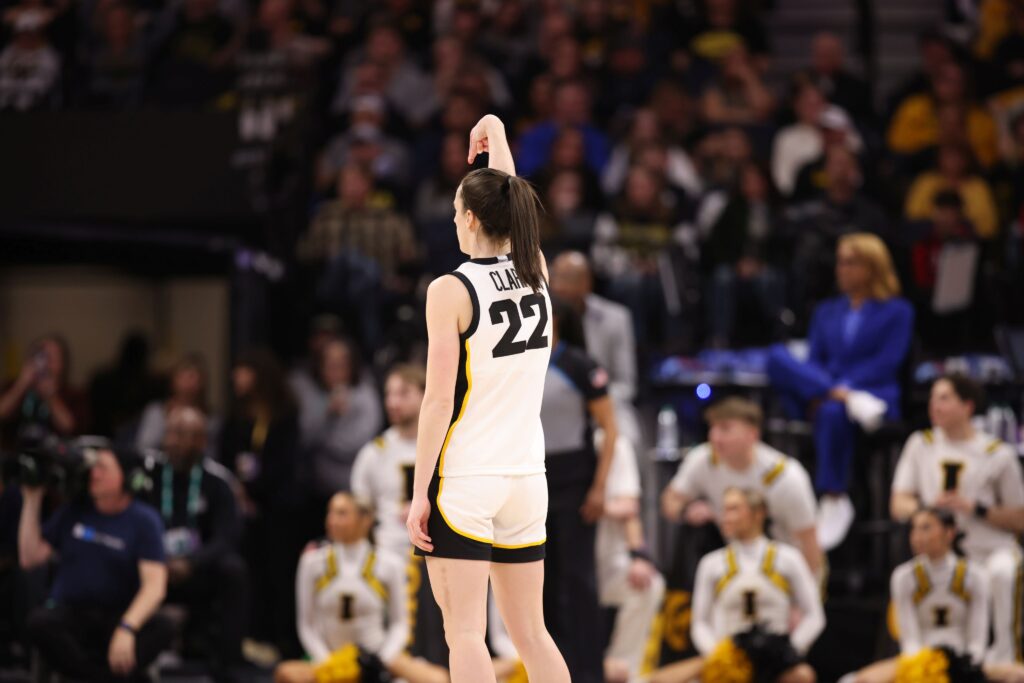Caitlin Clark has almost certainly had the greatest individual impact on Women’s basketball that the game has ever seen. She was a part of not only the four most-watched Women’s basketball games in the history of the sport, but also the most-attended Women’s basketball game on record. And, of course, the expansive audience that Clark attracts is a byproduct of her expansive game—a style of play so elusive that it feels almost impossible to completely wrap one’s mind around: logo threes galore, pinpoint passes into the opponent’s paint from the backcourt, a lethal step-back jumpshot off the dribble, handles shifty enough to get past almost any defender, flashy assists threaded through walls of defenders, and a remarkable ability to finish at the rim when she desires.
Clark is the greatest, in some respects
Caitlin Clark’s exceptional talent and unprecedented star power has got to make her the greatest at something, and maybe even at multiple things. By virtue of the numerous scoring records she has broken—most notably the all-time Women’s NCAA Division I scoring record (Kelsey Plum) and the major college scoring record (Lynette Woodard)—Clark has unequivocally cemented her legacy as the greatest scorer in Women’s college basketball history. That title is indisputable. Clark’s stats substantiate its objective validity.
It is also entirely within reason to call Clark the most marketable Women’s college basketball player ever—an effect of her being, by far, the most lauded in Women’s college basketball history. Those labels are supported by both her plethora of high-profile endorsement deals (State Farm, Nike, Gatorade, etc.) and the long list of awards and honors she has earned over the course of her collegiate career, headlined by consecutive John R. Wooden awards and consecutive AP and Naismith Player of the Year awards in 2023 and 2024. Clark’s marketability is also demonstrated by the WNBA’s decision to broadcast 36 of the Indiana Fever’s 40 regular-season games on national television this season. The Fever have the first overall pick in this year’s WNBA draft (April 15) and are highly expected to select Clark with it. Clearly, the WNBA hopes to capitalize on her immense popularity.
The dangers of excessive praise
Conversely, saying things like, “Caitlin Clark is the greatest Women’s basketball player ever, on any level,” is fanatical, premature, and, frankly, disrespectful to all the legends of the game, past and present, that came before her and laid the foundations upon which she has been able to flourish. Clark has yet to play a single game in the WNBA—a league that currently has only 12 teams and 12 available roster spots per team, meaning the competition Clark faces at the next level will comprise only the best of the best Women’s basketball players in the world. WNBA basketball is an incredibly high-level product, much more so than those who have never watched it tend to assume. Granted, players around the WNBA have yet to garner any level of media attention quite like what Clark has received over the last couple of years. In no way, however, is that an indication that those players are not extremely good at what they do.
Attempting to crown Clark as the greatest Women’s basketball player of all time, across all levels of the sport, before she ever laces up for a WNBA game is an extreme that Women’s basketball fans should refrain from going to. All that such claims will do, during what should be a constructive and enjoyable rookie season for Clark, is fuel and perpetuate undeserved resentment toward Clark: resentment from WNBA players, past and present, who have already accomplished and proven so much in the league; and resentment from fans who, while appreciative of all that Clark has done for the game, are more pragmatic in discussing her potential impact on and ultimate standing within the WNBA.
A silver lining in the dissension
Alternatively, it is possible that the polarizing nature of those very claims is exactly what drives the volume of conversation around Caitlin Clark, all that she has accomplished, and what a player like her will likely mean for the future of the WNBA—both immediate and distant.
Narratives and storylines riddled with sensationalism spread like wildfire in the era we live in, and subjective beliefs are often confused with objective truths. Fans will forever think and believe what they want to, but their perspectives and beliefs are the basis for meaningful conversations. Conversations about a topic are attention on that topic, attention on a topic is recognition of that topic, and recognition of a topic typically leads to that topic’s advancement in the public eye. In this case, that topic is Women’s basketball.
Clark hasn’t wavered in the face of any adversity thus far in her career, and she has quietly navigated the pressures and any criticisms she has faced—albeit rare in comparison to the praises she has received. None of this is new to her, and she seems keen to conquer whatever challenges come her way. Nonetheless, we, the fans—of both Clark and Women’s basketball—should at least try to refrain from instigating discourse that could inadvertently put a target on her back.
